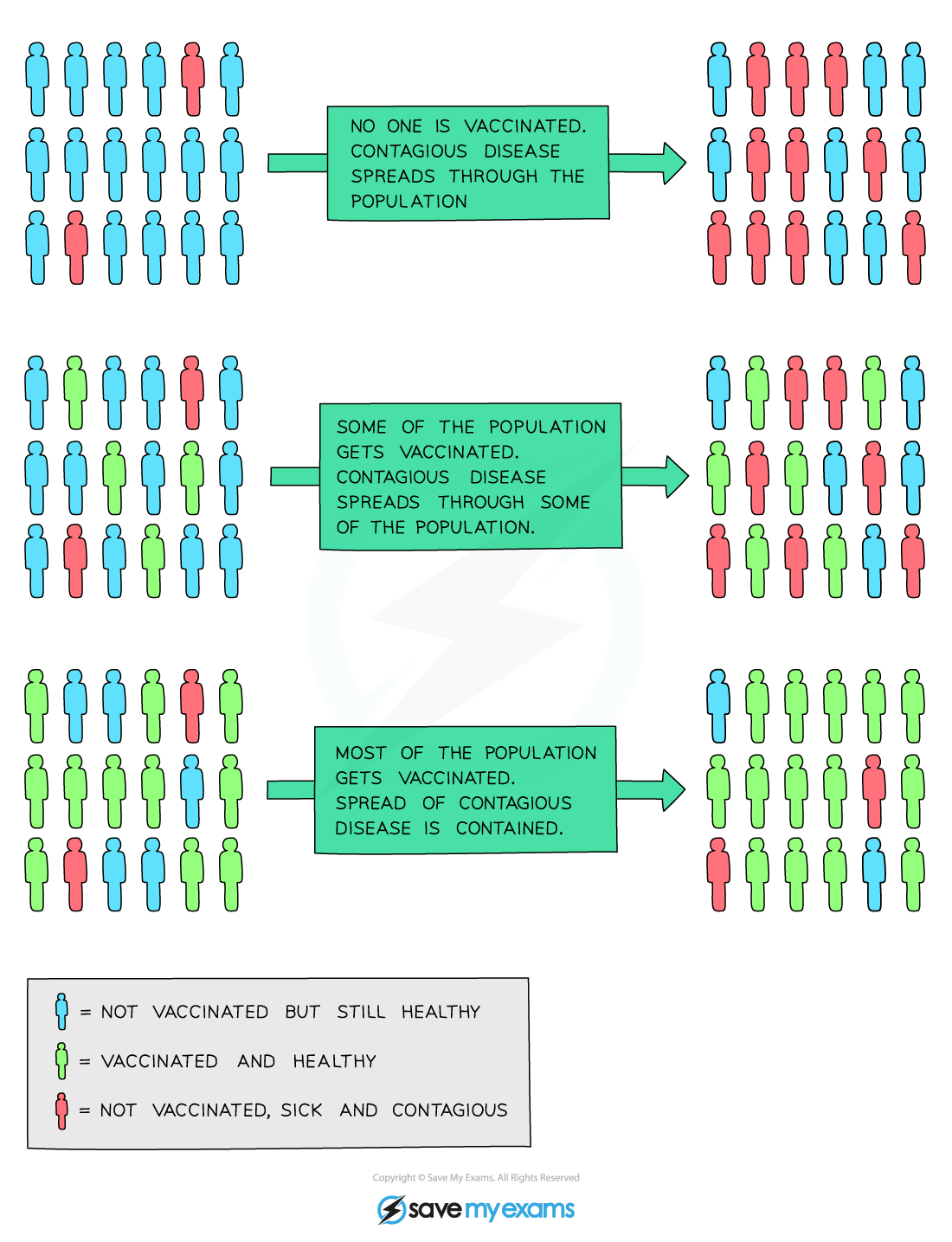Vaccination to Control Disease (Cambridge (CIE) AS Biology): Revision Note
Exam code: 9700
Vaccination to control disease
There are many safe and effective vaccines that exist against many pathogens
These vaccines have managed to push a number of childhood diseases to the verge of extinction
Vaccines against such diseases as mumps, chicken pox and whooping cough are administered to children as part of an immunisation schedule and they successfully result in immunity
As a result, many childhood diseases are kept at low levels within populations due to herd immunity
Herd immunity arises when a sufficiently large proportion of the population has been vaccinated (and are therefore immune)
This makes it difficult for a pathogen to spread within that population, as those not immunised are protected and unlikely to contract it as the levels of the disease are so low


Unlock more, it's free!
Was this revision note helpful?
